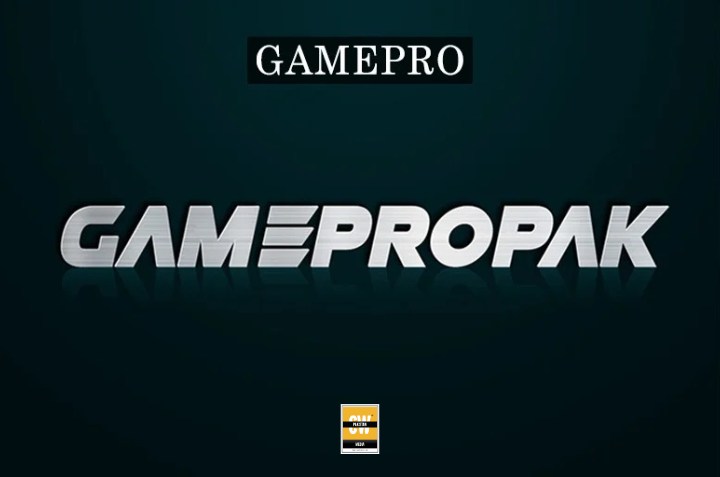Tekken arrived in Pakistan without headlines. It slipped in through back markets and bootleg discs, carried by arcade owners and neighborhood entrepreneurs. It needed no translation. Two fighters. One screen. The logic was simple and universal: timing, reaction, endurance. Long before the term esports gained currency, Pakistan had already found its language of play.
In the 1990s and early 2000s, small gaming dens became informal classrooms. Crowded arcades in Lahore and Karachi produced a generation fluent in pattern recognition. Players learned rhythm before vocabulary—the discipline of waiting, observing, then responding. Each round was a study in restraint. The best of them treated the game less as competition and more as method, a way of finding balance within noise.
By 2025, that discipline had become a national reflex. Pakistan now has more than 36 million gamers, about sixteen percent of its population, and the figure is expected to surpass 50 million within the next year. The gaming economy, valued at roughly USD 200 million in 2022, is small compared to the global market, but it’s growing fast. Esports alone generated about USD 5 million in 2024, with forecasts pushing toward USD 9 million by 2029. Behind the numbers is something harder to measure: a culture learning to think in systems.
At the center of this shift stands Arsalan “Ash” Siddique, Pakistan’s quiet master of Tekken. His rise from local arcades to international champion was documented by CNN in 2025, but what sets him apart is not triumph—it’s temperament. He plays with the calm of someone who has learned to ration movement. His longtime rival, Atif Butt, mirrors that stillness. Their matches often look static—a study in waiting. Every gesture is deliberate; nothing is wasted. When Pakistan’s team beat South Korea to win the Tekken 7 Nations Cup in Riyadh and its half-million-dollar prize, it felt less like an upset than an affirmation of style: control disguised as simplicity.
That clarity extends to other arenas. PUBG Mobile has turned urban Pakistan into a network of digital battlegrounds. Teams such as 4Thrives—the first Pakistani squad to reach the 2025 Esports World Cup—treat coordination as craft. They train the way chess players study openings, mapping angles, refining communication, analyzing terrain. The method is communal rather than individual, but the sensibility is the same: act only when the timing feels exact.
In another corner of the spectrum, Syed Sumail Hassan, or SumaiL, redefined global Dota 2 strategy when he won The International at sixteen. His victory wasn’t an isolated miracle; it was evidence of a shared cognitive pattern—foresight, patience, and the capacity to read complexity under pressure. Pakistani players have now earned more than USD 7 million across 500 international tournaments, two-thirds of it from Dota 2 alone. These wins come from improvised setups, shared apartments, and community-funded travel, not from institutional academies.
What distinguishes Pakistan’s scene is how instinct turns into infrastructure. Without corporate sponsorships or government programs, players train in peer networks. They stream matches, coach one another, and repair their own equipment. The result is an ecosystem built on repetition and shared learning—merit measured through execution. Tekken’s minimalist design makes it ideal for this: no backstory, no upgrades, no shortcuts, just movement and response. It is a fair game in a country that rarely is.
That fairness explains its magnetism. To play Tekken well is to learn discipline without instruction. The same precision animates the national mood beyond gaming. Programmers, designers, and animators—many began as players—carry that rhythm into their work. They are used to thinking iteratively, solving through adjustment rather than instruction. Pakistan’s digital workforce now grows out of these gaming reflexes: experiment, adapt, refine.
Across the Arabian Gulf, Saudi Arabia is building a physical manifestation of that digital ambition. Qiddiya City, part of Vision 2030, plans the world’s first Gaming and Esports District—an arena complex of more than 180 thousand square meters. For Pakistan, it represents both market and mirror. Many of its top players already compete under Saudi-sponsored teams; when Qiddiya opens fully, the talent flow will deepen. Yet Pakistan’s advantage remains internal. It doesn’t need architecture to produce excellence; it has cultivated precision through habit.
That precision is psychological as much as technical. The best Pakistani players don’t rely on reflex speed; they rely on rhythm recognition. They read the opponent, sense tempo shifts, and act at the exact instant uncertainty turns into opportunity. That same intelligence governs much of Pakistani life. In a country where unpredictability is constant, success depends less on control than on timing—knowing when to advance, when to pause, when to conserve energy. Tekken, Dota, PUBG, and mobile shooters all echo this logic.
Inside gaming rooms in Lahore or Faisalabad, the atmosphere is focused rather than frenetic. Screens cast a faint blue over faces; the sound is mechanical, steady. There’s no myth of chaos here, no cinematic tension—just attention. That small glow has become the country’s truest light: not darkness overcome, but concentration sustained.
Esports has become Pakistan’s most credible meritocracy. Skill is transparent and portable. A teenager from Multan can defeat an opponent in Seoul or Los Angeles under the same rules, the same latency, and the same console. In a society where status often depends on inheritance, gaming offers a rare kind of fairness. It rewards persistence, not privilege. For a generation growing up amid economic uncertainty, that fairness feels radical. It suggests that competence can still create mobility.
The country’s players share a common method: study patterns, test responses, repeat until instinct replaces doubt. The same method shapes how young Pakistanis approach coding, design, and data. Many of the country’s best developers, animators, and analysts began as gamers. The reflexes they built in competition—attention, iteration, coordination—now define their professional craft. What began as entertainment has become a training ground for digital precision.
That progression explains why Pakistan’s gaming community feels more like an education system than an industry. It teaches focus, patience, and system-level thinking. Those lessons now run through startups, design labs, and hackathons. Game engines are used to model architecture, build training simulators, and visualize logistics. The line between play and productivity is dissolving; the skill set is the same.
As Saudi Arabia builds gaming infrastructure at scale and global firms look toward South Asia, Pakistan’s advantage will not be size but sensibility. It already knows how to learn in noise, how to adapt fast, and how to build competence from scarcity. The world measures progress through investment; Pakistan measures it through iteration.
The future of the country’s digital economy may depend on this mindset. Gaming has given it a working model of precision under pressure. It has shown that discipline can emerge without institutions, that mastery can be communal rather than individual, and that intelligence is sometimes a matter of timing.
Pakistan’s best players have already proved that point. They play to win, but they also play to understand—how systems behave, how humans react, how ideas evolve through repetition. That outlook will shape more than esports. It’s a foundation for how the next generation will write code, design tools, and solve problems: with the same patience, calibration, and quiet confidence that drive a perfect round in Tekken.
Follow the SPIN IDG WhatsApp Channel for updates across the Smart Pakistan Insights Network covering all of Pakistan’s technology ecosystem.





